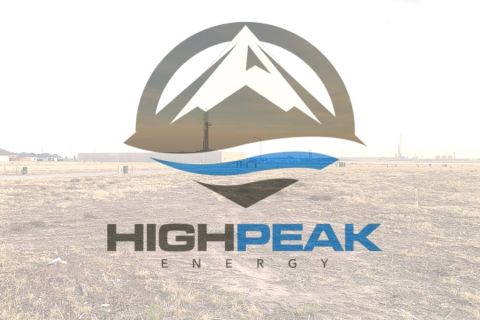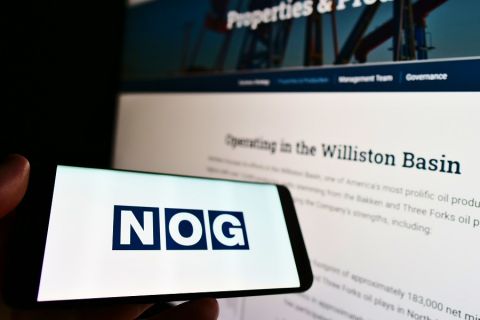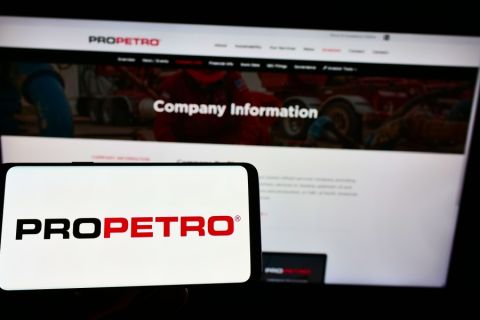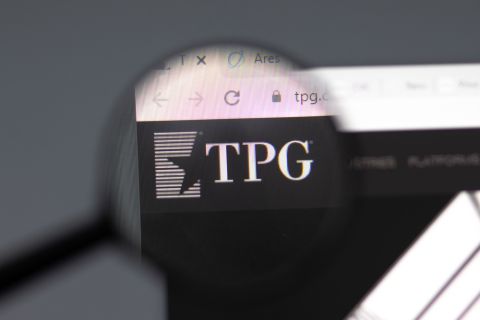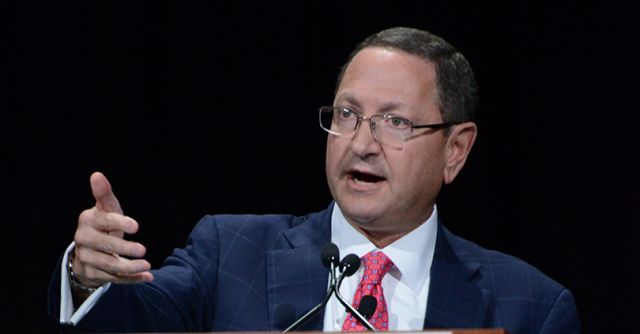
Ken Hersh, CEO of NGP Energy Capital Management. (Source: Hart Energy)
MIDLAND, Texas—As the global economy continues its transition from a period of resource scarcity to one of relative resource abundance, the balance of power has shifted in favor of consumers. But beneficiaries must be alert to opportunities that might otherwise be lost, as exemplified by the Iranian nuclear deal, which was an “awful” deal, according to Ken Hersh, CEO of NGP Energy Capital Management.
Domestic policy makers need to “come to grips with the fact that the U.S. energy industry is a huge economic engine,” Hersh said to attendees at Hart Energy’s Executive Oil Conference on Nov. 10. He noted that it was the efforts of the independent oil and gas sector—not “Big Oil”—that led to the unconventional shale revolution. Oil and gas production is now taking place in 32 states.
In negotiating the terms of the nuclear deal with Iran, U.S. negotiators could have built “leverage” by using the growing base of U.S. production as a bargaining tool, according to Hersh.
He said that Secretary of State John Kerry, “could have said, ‘Keep your oil in the ground. Your one million barrels per day (MMbbl/d) can produce about 100 years from now. But our producers are going to export crude and dial up another 1 MMbbl/d in about six months.’”
Instead, he continued, “we cut a deal with Iran that was awful. Iran got $160 billion. Iran got a path to ballistic missiles that they have already violated. And they’ve got a path to nuclear weapons. But, oh, we didn’t get our four hostages out.”
Hersh described the current crude oil export ban—a “holdover” from the 1970s—as being “absolutely ludicrous.”
U.S. policy makers “are obviously confused,” he said, pointing to the fact that the U.S. already exports about 3.5 MMbbl/d of refined products such as gasoline, diesel and jet fuel. It similarly already exports some 500,000 bbl/d of crude oil to Canada and Mexico.
There’s an element of “cognitive dissonance,” Hersh continued, in which “people don’t understand that the balance of power between producer and consumer has changed.”
Russia, led by President Vladimir Putin, has been affected by the changing dynamics, according to Hersh.
“His old message of being a strong hand with natural resources has massively changed,” he said. Now, “Russia needs to find more customers.”
The efforts that Russia is prepared to take to develop new markets were demonstrated by a 20-year natural gas supply agreement it struck with China. Even though the agreement required Russia to build a $55 billion pipeline, terms called for a natural gas price that was lower than that governing gas supplies to Germany, where infrastructure was already in place, Hersh said.
But U.S. policy makers have not moved quickly enough to adapt to the realities of the new environment, allowing themselves to be outmaneuvered in certain cases by Putin, according to Hersh. “He is playing a game of chess, while our policy makers are playing a game of checkers.”
“During the middle of the Iranian nuclear negotiations in Vienna, where Kerry is negotiating, [Putin] agrees to build eight nuclear reactors in Iran,” Hersh said. “While we’re negotiating for them to freeze, he strikes a deal.”
Most distressing, Hersh said, is the political landscape, where about half the population has started to question whether public servants working in government were there “to serve the public or to serve their own personal needs.”
He cited a CNN poll, in which as few as 28% of those polled opposed the Keystone XL pipeline extension, and yet it had not been built. Also, as many as 60% of those polled opposed the Iranian nuclear deal, yet it is on track to come into being next year.
“Maybe, just maybe,” he wondered, “the people in government, and in power, aren’t there to help us at all, but for the first time in my life could actually hurt us.”
Despite these troubling trends, the E&P sector should “stay strong and stay optimistic,” Hersh said.
“It is stunning to me for people to have missed the fact that the economic recovery was in large part driven by what happened in the oil and gas industry,” he said. “The natural resource revolution has given the U.S. a competitive and political edge that will shape the next 50 years.”
Chris Sheehan can be reached at csheehan@hartenergy.com.
Recommended Reading
HighPeak Energy Authorizes First Share Buyback Since Founding
2024-02-06 - Along with a $75 million share repurchase program, Midland Basin operator HighPeak Energy’s board also increased its quarterly dividend.
Northern Oil and Gas Ups Dividend 18%, Updates Hedging
2024-02-09 - Northern Oil and Gas, which recently closed acquisitions in the Utica Shale and Delaware Basin, announced a $0.40 per share dividend.
ProPetro Ups Share Repurchases by $100MM
2024-04-25 - ProPetro Holding Corp. is increasing its share repurchase program to a total of $200 million of common shares.
TPG Adds Lebovitz as Head of Infrastructure for Climate Investing Platform
2024-02-07 - TPG Rise Climate was launched in 2021 to make investments across asset classes in climate solutions globally.
Occidental Increases Annual Dividend by 22%
2024-02-11 - Occidental Petroleum Corp.’s newly declared dividend is at an annual rate of $0.88 per share, compared to the previous annual rate of $0.72 per share.

